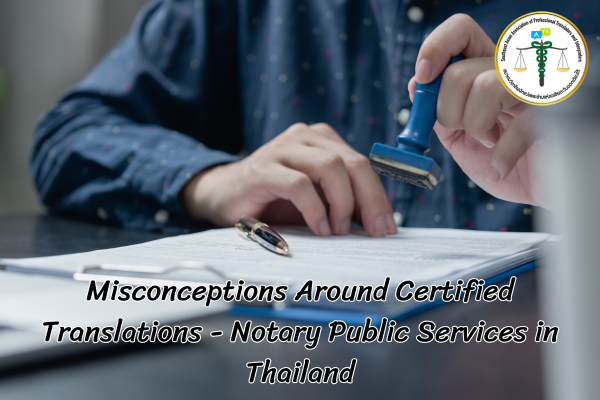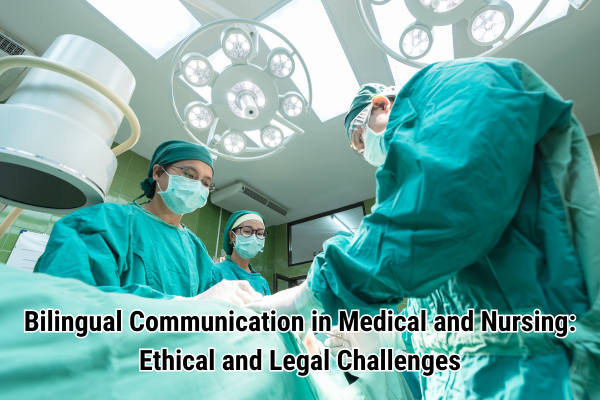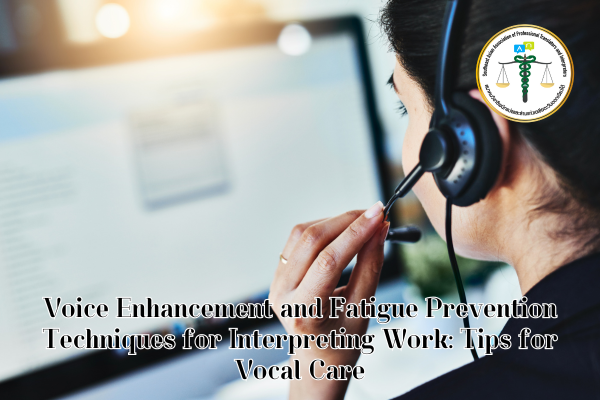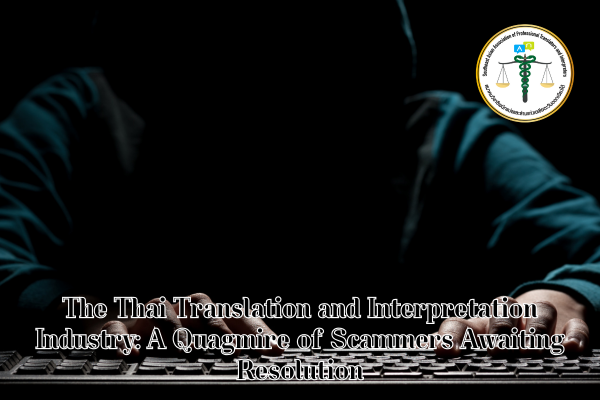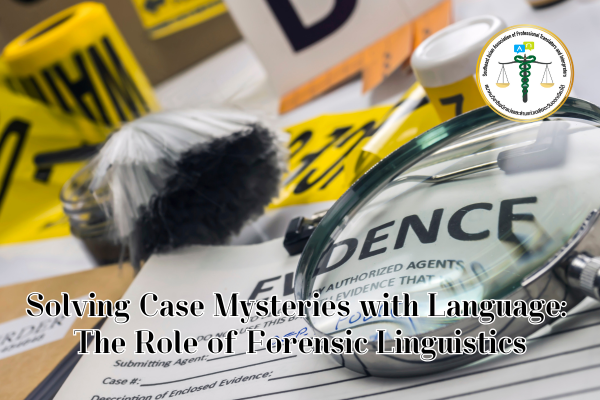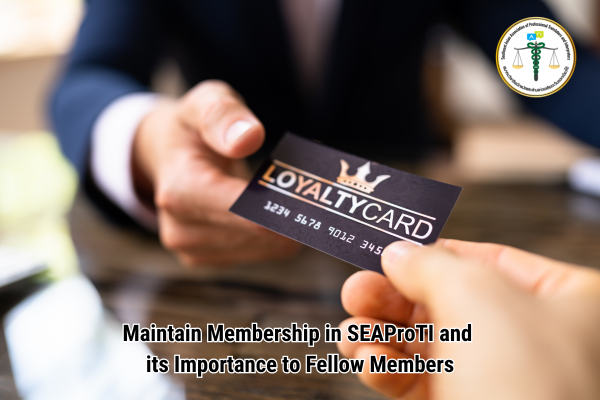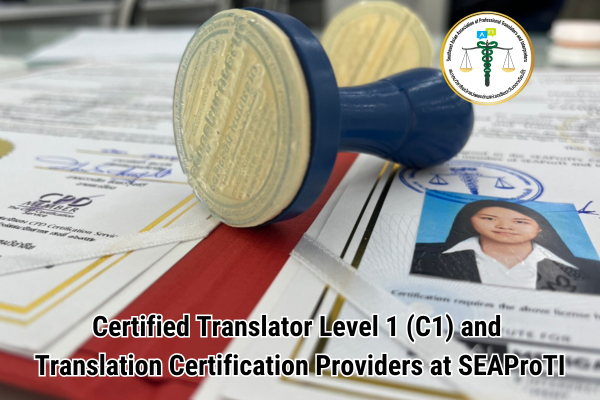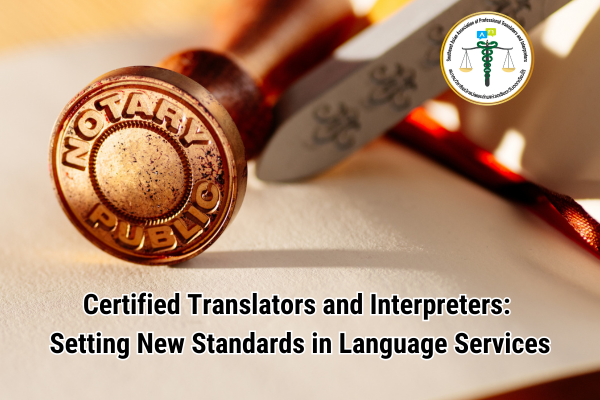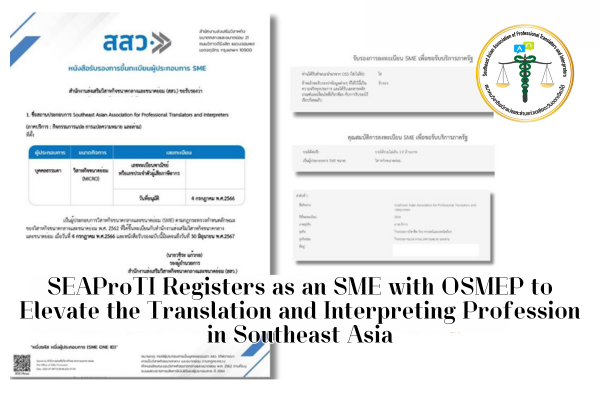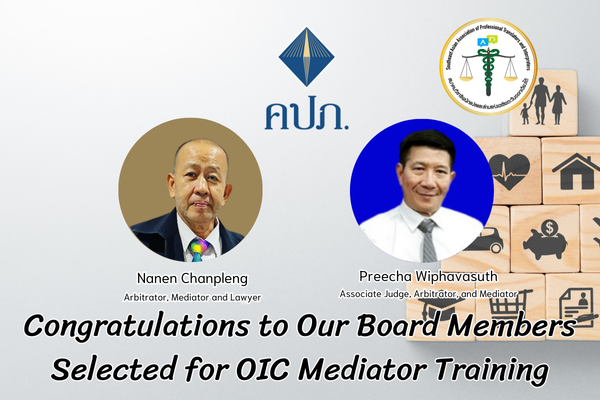Understanding the Misconceptions Around Certified Translations and Notary Public Services in Thailand
26 December 2024, Bangkok – For years, over 90% of Thai citizens have been misinformed or misunderstood the processes surrounding certified translations, document authentication, and the role of Notary Public and the Department of Consular Affairs under the Ministry of Foreign Affairs. These misconceptions have led to numerous instances where individuals have spent money on translations that foreign government agencies refuse to accept, causing delays and unnecessary stress. This article aims to clarify the key differences and provide guidance to help individuals navigate these processes effectively.
What Are Certified Translations?
Certified translations are official translations of documents that have been completed by a qualified translator and accompanied by a signed declaration confirming their accuracy and authenticity. These translations are often required for legal, academic, or official purposes, such as visa applications, court proceedings, or educational admissions abroad.
Certified translations must meet specific standards set by the receiving institution or country. In Thailand, certified translations are best obtained through professionals accredited by the Southeast Asian Association of Professional Translators and Interpreters (SEAProTI), the sole authority for certifying translators, interpreters, and translation verifiers.
What Certified Translations Are Not
A common misconception is that any translated document is automatically valid if it is notarized or stamped by a government office. However, this is not the case. A certified translation is distinct from a notarized document. A notarization merely confirms the identity of the signer, not the accuracy or validity of the translation.
The Role of Notary Public
A Notary Public is a legal professional authorized to authenticate signatures, administer oaths, and certify copies of documents. In Thailand, many believe that a Notary Public can validate translations, but this is incorrect. A Notary Public’s role is limited to verifying the identity of the signer or affixing a seal to a document. They do not assess or confirm the accuracy of translated content.
Thailand does not have a Notary Public under the Hague Apostille Convention.
The Hague Apostille Convention is an international treaty concerning the certification of documents for international use. Since Thailand has not joined this treaty, there is no Notary Public system like that used in countries that adhere to this convention.
Role of Notarial Service Attorney
Lawyers who are members of the Lawyers Council of Thailand under Royal Patronage can register to become Notarial Service Attorneys or attorneys authorized to certify signatures and documents.
- Their primary responsibilities include certifying documents and signatures for domestic or international use, acting as witnesses for signatures, and providing certifications related to legal processes.
- However, Notarial Service Attorneys do not have the same legal status as Notary Publics in some countries and cannot issue Apostille certifications under the Hague Convention.
Role of the Department of Consular Affairs, Ministry of Foreign Affairs
Currently, the Department of Consular Affairs performs duties related to document certification for use abroad, such as certifying official documents, translating documents, and stamping certifications. However, there has been no establishment of a Notary Public office or an equivalent entity directly.
- The services provided by the Department of Consular Affairs enable documents issued in Thailand to be used internationally, but acceptance depends on the destination country.
Thailand does not have an official Notary Public system under the Hague Apostille Convention. Instead, it has Notarial Service Attorneys who provide similar services for document certification. Individuals intending to use documents abroad should verify the requirements of the destination country. If assistance is needed, consulting a licensed Notarial Service Attorney or the Department of Consular Affairs is recommended to ensure the documents will be accepted.
The Role of the Department of Consular Affairs
The Department of Consular Affairs under the Ministry of Foreign Affairs often becomes involved in the authentication process for legal documents. However, it is important to note that this department does not provide translation services or certify translators. Their primary role is to verify the authenticity of Thai-issued documents, such as birth certificates or marriage certificates, for use abroad.
Consequences of Misunderstanding the Process
-
Financial Loss: Many individuals fall victim to unscrupulous translation providers or use services that fail to meet international standards. As a result, they must pay for translations again when their documents are rejected by foreign authorities.
-
Wasted Time: Submitting improperly translated or uncertified documents can lead to significant delays in applications for visas, jobs, or education. Re-applying with the correct documentation can take weeks or even months.
-
Missed Opportunities: In some cases, these delays can result in missed deadlines, lost job offers, or denial of university admissions, which can have long-term consequences for individuals and their families.
How to Avoid Common Pitfalls
1. Choose Certified Translators
Always select translators certified by reputable organizations such as SEAProTI. These professionals have the expertise and credentials to provide translations that meet international standards. The SEAProTI certification ensures that the translator is qualified to handle complex legal, technical, and official documents accurately.
2. Understand the Requirements of the Receiving Party
Before proceeding with a translation, verify the requirements of the institution or agency where the document will be submitted. Some agencies may require notarization in addition to certification, while others may have specific format or language requirements.
3. Avoid Unaccredited Services
Be cautious of translation services that offer “guaranteed acceptance” without proper accreditation. These services often lack the necessary expertise and produce substandard translations that are likely to be rejected.
4. Seek Expert Guidance
If you are unsure about the process, consult with a professional translation service or legal expert familiar with international documentation requirements. They can guide you through the necessary steps and ensure your documents are prepared correctly.
Trusted Certified Translation Providers in Thailand
Several SEAProTI-certified providers in Thailand offer reliable and professional translation services. Some of the top providers include:
-
Phothong Translation (Ubon Ratchathani): Specializes in legal and official document translations with a reputation for accuracy and reliability.
-
Ideal Partner Group Partnership Limited (Loei): Known for their expertise in handling complex legal documents for international use.
-
New Stamford School Translation Center: Offers certified translations for educational and immigration purposes.
-
Hub of Language Co., Ltd. (Nonthaburi): Provides multilingual translation services with a focus on technical and business documents.
-
Language Institute, Hatyai University: Renowned for their high-quality academic and professional translation services.
-
Baan Ajarn Mark (Surin): A trusted provider for certified translations and localization services.
Additionally, the collaboration between Fastwork and SEAProTI has made it easier to access certified translators online, offering convenience and reliability for individuals across Thailand.
The Importance of Education and Awareness
The widespread misconceptions surrounding certified translations and document authentication highlight the need for better education and awareness. By understanding the roles of translators, Notary Public, and government agencies, individuals can make informed decisions and avoid costly mistakes.
Key Takeaways
-
Certified translations are essential for ensuring the acceptance of official documents abroad. They must be completed by accredited professionals.
-
Notary Public services authenticate signatures and certify documents but do not validate the accuracy of translations.
-
The Department of Consular Affairs authenticates Thai documents but does not provide translation or certification services.
-
Working with SEAProTI-certified translators ensures that your documents meet international standards and are accepted by foreign authorities.
-
Proper planning and research can save you time, money, and potential setbacks.
Conclusion
Understanding the nuances of certified translations, Notary Public services, and the role of government agencies is critical for anyone dealing with official documents in Thailand. By avoiding common misconceptions and working with certified professionals, individuals can streamline their processes and achieve their goals more efficiently. Investing in accurate and reliable translation services is not just a matter of compliance but a crucial step towards ensuring your documents are recognized and respected globally.
About SEAProTI’s certified translators, translation certification providers, and certified interpreters:
The Southeast Asian Association of Professional Translators and Interpreters (SEAProTI) has officially announced the criteria and qualifications for individuals to register as “Certified Translators,” “Translation Certification Providers,” and “Certified Interpreters” under the association’s regulations. These guidelines are detailed in Sections 9 and 10 of the Royal Thai Government Gazette, issued by the Secretariat of the Cabinet under the Office of the Prime Minister of the Kingdom of Thailand, dated July 25, 2024, Volume 141, Part 66 Ng, Page 100.
To read the full publication, visit: the Royal Thai Government Gazette
ความเข้าใจผิดเกี่ยวกับการแปลเอกสารรับรองและบริการของ Notary Public ในประเทศไทย
26 ธันวาคม 2567, กรุงเทพมหานคร – ตลอดหลายปีที่ผ่านมา คนไทยกว่า 90% ยังคงมีความเข้าใจผิดหรือไม่เข้าใจเกี่ยวกับกระบวนการแปลเอกสารรับรอง การรับรองเอกสาร และบทบาทของ Notary Public และกรมกงสุล กระทรวงการต่างประเทศ ความเข้าใจที่คลาดเคลื่อนเหล่านี้ทำให้หลายคนเสียเงินไปกับการแปลเอกสารที่หน่วยงานราชการในต่างประเทศไม่ยอมรับ ส่งผลให้เกิดความล่าช้าและความเครียดที่ไม่จำเป็น บทความนี้มีเป้าหมายเพื่อชี้แจงความแตกต่างที่สำคัญและให้คำแนะนำเพื่อช่วยให้บุคคลทั่วไปสามารถดำเนินการอย่างถูกต้อง
เอกสารแปลรับรองคืออะไร
เอกสารแปลรับรองคือเอกสารที่ได้รับการแปลอย่างเป็นทางการโดยนักแปลที่มีคุณสมบัติเหมาะสม พร้อมกับการลงลายมือชื่อรับรองความถูกต้องและความครบถ้วนของการแปล โดยเอกสารเหล่านี้มักจะใช้สำหรับวัตถุประสงค์ทางกฎหมาย การศึกษา หรือการดำเนินการทางราชการ เช่น การสมัครวีซ่า การดำเนินคดีในศาล หรือการสมัครเรียนในต่างประเทศ
เอกสารแปลรับรองต้องเป็นไปตามมาตรฐานที่กำหนดโดยหน่วยงานหรือประเทศที่รับเอกสารนั้น ในประเทศไทย การแปลเอกสารรับรองควรดำเนินการโดยมืออาชีพที่ได้รับการรับรองจากสมาคมนักแปลและล่ามมืออาชีพแห่งเอเชียตะวันออกเฉียงใต้ (SEAProTI) ซึ่งเป็นหน่วยงานเดียวที่รับรองนักแปล ผู้ตรวจสอบการแปล และล่ามในประเทศไทย
เอกสารแปลรับรองไม่ใช่อะไร
ความเข้าใจผิดที่พบบ่อยคือ เอกสารแปลทุกฉบับจะได้รับการยอมรับโดยอัตโนมัติหากมีการรับรองโดย Notary Public หรือประทับตราจากหน่วยงานราชการ อย่างไรก็ตาม นี่ไม่ใช่ความจริง เอกสารแปลรับรองมีความแตกต่างจากเอกสารที่ผ่านการรับรองโดย Notary Public โดยการรับรองจาก Notary Public นั้นเพียงแค่ยืนยันตัวตนของผู้ลงนามเท่านั้น ไม่ได้ยืนยันความถูกต้องหรือความครบถ้วนของการแปล
บทบาทของ Notary Public
Notary Public คือผู้เชี่ยวชาญทางกฎหมายที่ได้รับอนุญาตให้รับรองลายมือชื่อ การปฏิญาณตน และรับรองสำเนาเอกสาร ในประเทศไทย หลายคนเข้าใจผิดว่า Notary Public สามารถรับรองความถูกต้องของการแปลเอกสารได้ ซึ่งไม่ถูกต้อง บทบาทของ Notary Public จำกัดอยู่ที่การยืนยันตัวตนของผู้ลงนามหรือการประทับตราบนเอกสารเท่านั้น โดยไม่มีการตรวจสอบหรือยืนยันความถูกต้องของเนื้อหาในเอกสารที่แปล
ประเทศไทยไม่มี Notary Public ที่อยู่ภายใต้สนธิสัญญากรุงเฮก
- สนธิสัญญากรุงเฮก (Hague Apostille Convention) เป็นสนธิสัญญาระหว่างประเทศที่เกี่ยวข้องกับการรับรองเอกสารระหว่างประเทศ ซึ่งประเทศไทยยังไม่ได้เข้าร่วมสนธิสัญญานี้ จึงไม่มี Notary Public แบบที่ประเทศอื่น ๆ ใช้ในระบบนี้
-
บทบาทของ Notarial Service Attorney
- ทนายความที่เป็นสมาชิกของ สภาทนายความในพระบรมราชูปถัมภ์ สามารถขอขึ้นทะเบียนเพื่อเป็น Notarial Service Attorney หรือ ทนายผู้ทำคำรับรองลายมือชื่อและเอกสาร
- หน้าที่หลัก ได้แก่ การรับรองเอกสารและลายมือชื่อเพื่อใช้ในประเทศหรือต่างประเทศ การเป็นพยานลายเซ็น และการให้คำรับรองเกี่ยวกับเอกสารที่เกี่ยวข้องในกระบวนการทางกฎหมาย
- อย่างไรก็ตาม Notarial Service Attorney ไม่มีสถานะทางกฎหมายเทียบเท่ากับ Notary Public ในบางประเทศ และไม่ได้รับรองเอกสารแบบ Apostille ตามสนธิสัญญากรุงเฮก
บทบาทของกรมกงสุล กระทรวงการต่างประเทศ
- ปัจจุบัน กรมกงสุลทำหน้าที่ในการรับรองเอกสารที่ใช้ในต่างประเทศ เช่น การรับรองเอกสารราชการ การแปลเอกสาร และการประทับตรารับรอง แต่ยังไม่มีการจัดตั้ง สำนักงาน Notary Public หรือหน่วยงานที่มีหน้าที่เหมือนกันโดยตรง
- บริการของกรมกงสุลช่วยให้เอกสารที่ออกจากประเทศไทยสามารถใช้งานในต่างประเทศได้ แต่การยอมรับขึ้นอยู่กับประเทศปลายทาง
ประเทศไทยไม่มี Notary Public อย่างเป็นทางการตามสนธิสัญญากรุงเฮก แต่มี Notarial Service Attorney ที่สามารถให้บริการคล้ายกันในด้านการรับรองเอกสาร สำหรับผู้ที่ต้องการใช้เอกสารในต่างประเทศควรตรวจสอบข้อกำหนดของประเทศปลายทาง และหากต้องการความช่วยเหลือ ควรปรึกษาทนายที่มีใบอนุญาต Notarial Service หรือกรมกงสุลเพื่อให้แน่ใจว่าเอกสารจะได้รับการยอมรับ
บทบาทของกรมกงสุล
กรมกงสุล กระทรวงการต่างประเทศ มีบทบาทสำคัญในกระบวนการรับรองเอกสารทางกฎหมาย อย่างไรก็ตาม ควรทราบว่า กรมกงสุลไม่ได้ให้บริการแปลเอกสารหรือไม่ได้รับรองนักแปล หน้าที่หลักของกรมกงสุลคือการตรวจสอบความถูกต้องของเอกสารที่ออกโดยหน่วยงานในประเทศไทย เช่น สูติบัตรหรือทะเบียนสมรส สำหรับการใช้งานในต่างประเทศ
ผลกระทบจากความเข้าใจผิด
-
เสียเงิน: หลายคนตกเป็นเหยื่อของผู้ให้บริการแปลที่ไม่มีความน่าเชื่อถือหรือใช้บริการที่ไม่ได้มาตรฐานสากล ส่งผลให้ต้องเสียเงินจ้างแปลใหม่อีกครั้งเมื่อเอกสารถูกปฏิเสธ
-
เสียเวลา: การยื่นเอกสารที่แปลไม่ถูกต้องหรือไม่ได้รับการรับรอง อาจทำให้การดำเนินการ เช่น การสมัครวีซ่าหรือการยื่นสมัครงาน ล่าช้า และอาจต้องเริ่มต้นใหม่ทั้งหมด
-
เสียโอกาส: ในบางกรณี ความล่าช้าดังกล่าวอาจส่งผลให้พลาดโอกาสสำคัญ เช่น การสมัครเรียน การรับข้อเสนองาน หรือการขอย้ายถิ่นฐาน
วิธีหลีกเลี่ยงข้อผิดพลาดที่พบบ่อย
1. เลือกนักแปลที่ได้รับการรับรอง
เลือกใช้นักแปลที่ได้รับการรับรองจากองค์กรที่น่าเชื่อถือ เช่น SEAProTI นักแปลเหล่านี้มีความเชี่ยวชาญและได้รับการรับรองความสามารถในการแปลเอกสารทางกฎหมาย เทคนิค และราชการที่ซับซ้อน
2. ทำความเข้าใจข้อกำหนดของหน่วยงานปลายทาง
ก่อนดำเนินการแปลเอกสาร ควรตรวจสอบข้อกำหนดของหน่วยงานหรือองค์กรที่คุณต้องยื่นเอกสาร บางหน่วยงานอาจต้องการการรับรองจาก Notary Public เพิ่มเติม หรือมีข้อกำหนดเฉพาะด้านรูปแบบหรือภาษาที่ใช้
3. หลีกเลี่ยงบริการที่ไม่ได้รับการรับรอง
ระมัดระวังบริการแปลเอกสารที่รับประกันว่า “ได้รับการยอมรับแน่นอน” โดยไม่มีการรับรองที่เหมาะสม บริการเหล่านี้มักไม่มีความเชี่ยวชาญเพียงพอและอาจส่งผลให้เอกสารถูกปฏิเสธ
4. ขอคำแนะนำจากผู้เชี่ยวชาญ
หากไม่มั่นใจในกระบวนการ ควรปรึกษาผู้เชี่ยวชาญด้านการแปลเอกสารหรือผู้เชี่ยวชาญทางกฎหมายที่คุ้นเคยกับข้อกำหนดของเอกสารระหว่างประเทศ พวกเขาสามารถแนะนำขั้นตอนที่เหมาะสมและช่วยให้เอกสารของคุณถูกต้องตามข้อกำหนด
ผู้ให้บริการแปลเอกสารรับรองที่น่าเชื่อถือในประเทศไทย
มีผู้ให้บริการที่ได้รับการรับรองจาก SEAProTI หลายรายในประเทศไทยที่ให้บริการแปลเอกสารอย่างมืออาชีพและน่าเชื่อถือ ผู้ให้บริการชั้นนำบางราย ได้แก่:
-
Phothong Translation (อุบลราชธานี): เชี่ยวชาญการแปลเอกสารทางกฎหมายและราชการ ด้วยความแม่นยำและเชื่อถือได้
-
Ideal Partner Group Partnership Limited (เลย): มีความเชี่ยวชาญในการจัดการเอกสารทางกฎหมายที่ซับซ้อนสำหรับใช้งานในต่างประเทศ
-
New Stamford School Translation Center: ให้บริการแปลเอกสารรับรองสำหรับการศึกษาและการย้ายถิ่นฐาน
-
Hub of Language Co., Ltd. (นนทบุรี): ให้บริการแปลหลายภาษา โดยเน้นด้านเอกสารเทคนิคและธุรกิจ
-
Language Institute, Hatyai University: มีชื่อเสียงด้านการแปลเอกสารการศึกษาและวิชาชีพคุณภาพสูง
-
Baan Ajarn Mark (สุรินทร์): ผู้ให้บริการที่ได้รับความไว้วางใจในการแปลเอกสารรับรองและการแปลเนื้อหาสำหรับท้องถิ่น
นอกจากนี้ ความร่วมมือระหว่าง Fastwork และ SEAProTI ยังช่วยให้สามารถเข้าถึงนักแปลที่ได้รับการรับรองได้อย่างง่ายดายผ่านช่องทางออนไลน์ สร้างความสะดวกสบายและความน่าเชื่อถือสำหรับผู้ใช้บริการทั่วประเทศ
ความสำคัญของการศึกษาและความตระหนักรู้
ความเข้าใจผิดที่แพร่หลายเกี่ยวกับการแปลเอกสารรับรองและการรับรองเอกสาร แสดงให้เห็นถึงความจำเป็นในการให้ความรู้และสร้างความตระหนัก การเข้าใจบทบาทของนักแปล Notary Public และหน่วยงานราชการ จะช่วยให้บุคคลทั่วไปตัดสินใจอย่างถูกต้องและหลีกเลี่ยงความผิดพลาดที่มีค่าใช้จ่ายสูง
สรุปประเด็นสำคัญ
-
เอกสารแปลรับรองเป็นสิ่งสำคัญเพื่อให้เอกสารได้รับการยอมรับในต่างประเทศ ต้องดำเนินการโดยผู้เชี่ยวชาญที่ได้รับการรับรอง
-
บริการ Notary Public มีหน้าที่รับรองลายมือชื่อและเอกสาร แต่ไม่เกี่ยวข้องกับการยืนยันความถูกต้องของการแปล
-
กรมกงสุลตรวจสอบความถูกต้องของเอกสารที่ออกในประเทศไทย แต่ไม่ได้ให้บริการแปลเอกสารหรือรับรองนักแปล
-
การทำงานร่วมกับนักแปลที่ได้รับการรับรองจาก SEAProTI ช่วยให้มั่นใจว่าเอกสารของคุณเป็นไปตามมาตรฐานสากลและได้รับการยอมรับจากหน่วยงานในต่างประเทศ
-
การวางแผนและการศึกษาข้อมูลล่วงหน้าช่วยประหยัดเวลา เงิน และหลีกเลี่ยงปัญหาที่อาจเกิดขึ้น
เกี่ยวกับนักแปลรับรอง ผู้รับรองการแปล และล่ามรับรองของสมาคมวิชาชีพนักแปลและล่ามแห่งเอเชียตะวันออกเฉียงใต้
สมาคมวิชาชีพนักแปลและล่ามแห่งเอเชียตะวันออกเฉียงใต้ (SEAProTI) ได้ประกาศหลักเกณฑ์และคุณสมบัติผู้ที่ขึ้นทะเบียนเป็น “นักแปลรับรอง (Certified Translators) และผู้รับรองการแปล (Translation Certification Providers) และล่ามรับรอง (Certified Interpreters)” ของสมาคม หมวดที่ 9 และหมวดที่ 10 ในราชกิจจานุเบกษา ของสำนักเลขาธิการคณะรัฐมนตรี ในสำนักนายกรัฐมนตรี แห่งราชอาณาจักรไทย ลงวันที่ 25 ก.ค. 2567 เล่มที่ 141 ตอนที่ 66 ง หน้า 100 อ่านฉบับเต็มได้ที่: นักแปลรับรอง ผู้รับรองการแปล และล่ามรับรอง


